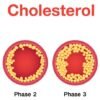We deliver to you every day from 7:00 to 23:00
The best discounts this week
Every week you can find the best discounts here.
M.M.N. Churn
Thyronil Capsule
STONE-X Capsule
Soranil Capsule
Kesh Care Capsule
Pile-X Capsule
What Is High Blood Pressure?
Blood pressure that is high can cause an issue that can affect your arteries. If you’re suffering from it the blood pressure is pushing over the walls in your blood vessels. This causes your heart to have to work harder to circulate blood throughout your body.
The most risky aspect of elevated blood pressure is that you might not be aware of it. It’s true that nearly a third of those with high blood pressure aren’t aware that they have it. It’s due to the fact that high blood pressure does not show any indications unless it’s extreme. The most effective way to determine whether your blood pressure is too high is to have regular blood pressure checks. It is also possible to monitor the blood pressure at home. This is particularly important in the case of an immediate family member who suffers from high blood pressure.
Hypertension in comparison to. hypertension
Hypertension is a different term for high blood pressure.
Doctors categorize high blood pressure in two ways: the primary one and then the secondary.
High blood pressure Primary, sometimes known as critical, high blood pressure isn’t caused by a single factor. It is a gradual process that develops.
High blood pressure secondary to another can be the result of an underlying health issue or a food item you’ve consumed. The things that can trigger secondary hypertension are:
- Adrenal gland tumors
- Heart and blood vessel issues that are genetically inherited
- Cold medicine, pain relief birth control pills and other prescription drugs
- Illicit drugs, such as amphetamines and cocaine
- Kidney disease
- Sleep Apnea
- Thyroid problems
For certain people, taking their blood pressure at the doctor’s appointment can cause their blood pressure to increase. This is known as “white coat hypertension.”
Blood pressure is in a normal range
The measurement of blood pressure can be measured in millimeters of mercury, often referred to as mm HG. The blood pressure measurement is recorded in two numbers.
- Systolic (the highest number on the list) determines the amount of pressure your blood exerts on the artery wall when your heart contracts.
- Dystolic (the lower number) is the measurement of pressure on the walls of your artery while your heart is at rest between contractions.
Recent Posts
- Ayurvedic Home Remedies to Boost Your Immunity
- How to Improve Digestion Naturally with Ayurveda
- Joint Care Capsule – The Ayurvedic Solution for Stronger, Pain-Free Joints Naturally
- Fatgrill Capsule: Ayurvedic Weight Loss Solution for Natural Fat Burn & Metabolism Boost
- Dard Nashak Oil – Best Ayurvedic Pain Relief Oil for Joint Pain, Back Pain & Body Ache











